Cao Ngoc Son: Famous for "speed" in the rowing village, the past is full of difficulties
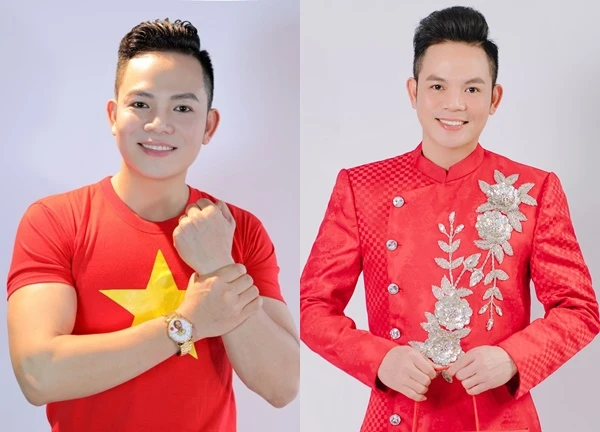
1 | 0 Discuss | Share
The late artist Tran Bang was an intellectual with a background in mandarin examinations and had a close relationship with writer Khai Hung. During his lifetime, he was known as the "boss of Cheo" because of his early exposure and profound influence on this art form.
The grandfather of the late artist Tran Bang was the governor Tran My. His father was the writer Tran Tieu, who passed the Thanh Chung exam, opened a school and was an effective collaborator of the Tu Luc Van Doan. Originally content with teaching in his hometown, he had no intention of writing, but it was the encouragement of his older brother - the writer Khai Hung (Tran Khanh Giu) - the author of famous novels such as: Hon buom mo tien, Nua dang xuan, Tieu Son trang si, Trong mai,... that at the age of 36, writer Tran Tieu stepped into the literary world. Although he entered the literary world late, he affirmed his writing ability through the novels Con trau, Chong con, Lang Cam doi moi; Duoi anh trang (1936, co-written with Khai Hung). He is considered the first Vietnamese writer to write about the buffalo, the "head of the career", the close "friend" of farmers.
Tran Bang grew up in a family tradition of literature and art. He studied the national language in addition to Chinese, absorbed and accepted Confucian teachings, and was fluent in many foreign languages, including English, French, Russian, German... and was especially fluent in French. His student - Dr. Tran Dinh Ngon - spoke of his scientific advisor with respect: "He accepted Marxist philosophy and at the same time understood Eastern philosophical thought. The motto of "going forth, acting, acting, and hiding" in the conduct of intellectuals also became the motto of Professor Tran Bang - who always built and protected the common cause and preserved the personality of a Northern scholar".
As a talented and erudite Western-educated intellectual trained during the French period, Professor and People's Artist Tran Bang always maintained the demeanor of a "Northern scholar" who valued personality and talent. He joined the revolution, realizing the mission of culture "to light the way for the nation". Leaving his hometown of Vinh Bao, the artist Tran Bang went to the Viet Bac resistance base, and from there he became involved with the Central People's Art Troupe...
With the qualities of a "Northern scholar", he valued a beautiful lifestyle and passed that way of life on to his children and grandchildren. There was a small matter when he was about to return from the hospital, or had already returned home, his students found out and came to visit him one after another. This happened several times, when his beloved student, the screenwriter Nguyen Thi Hong Ngát, came to visit him with the intention of blaming him, he only smiled gently and said humorously: "I was afraid that everyone would lose their jobs, and moreover, I was afraid that the eyes of visitors would make me feel as if I was about to... "go"!"
In early 2017, the President signed to award and posthumously award the Ho Chi Minh Prize for Literature and Arts, the 5th term, to 10 authors, including his student - Dr. Tran Dinh Ngon. Not seeing his name on the above list, Professor. People's Artist Tran Bang just smiled and said: "10 artists with excellent and especially excellent works contributing to the cause of building Socialism and defending the Fatherland, the honor of receiving the Ho Chi Minh Prize is completely worthy."
Calmly, he told his son: "In life, the most important thing is that you have contributed to your profession." Until April 19, 2017, the President signed a decision to award 7 more Ho Chi Minh Prizes for Literature and Arts, including People's Artist Tran Bang and 6 other authors (musician Thuan Yen, poet Thu Bon, musician Dinh Ngoc Lien, artist Luong Nghia Dung, artist Ta Quang Bao), he still just smiled gently. His smiling eyes looked into the distance, moved as if he was recalling President Ho Chi Minh's advice in Viet Bac more than 60 years ago: "Cheo is a precious gem. We must strive to learn, especially skilled artisans, to deeply understand, master and preserve the Cheo profession."
On July 19, 2023, Meritorious Artist Tran Luc announced that his father, People's Artist Tran Bang, passed away at 6:00 a.m. the same day after being hospitalized. He was 97 years old. A few days ago, artist Tran Bang fell and had to undergo joint replacement surgery. Director Tran Luc announced the good news of a successful surgery. However, he had a fever for many days afterwards due to pneumonia.
In recent years, his health has been poor but his spirit is clear. The artist has lived with his son's family for the past 6 years. At the age of over 90, he still updates news via social networks and is proficient in using the iPad. Artist Tran Bang is known as the "boss of Cheo", because he belongs to the first generation to restore the art of Cheo that gradually faded away due to the Westernization movement in the 1950s. He is a director, composer, scholar and Cheo theorist.
From a young age, he was passionate about foreign literature and drama. At the age of twenty, he could read Han Nom books and was fluent in many languages. After the August Revolution, he joined the resistance war against the French. In 1951, he joined the Central Art Troupe, in the same drama group as The Lu, Song Kim, Nguyen Hoai... Here, he began to learn the art of Cheo.
In 1957, he, Bui Duc Hanh, Hoang Kieu, Ha Van Cau, Ho Ngoc Can and artists Trum Thinh, Ca Tam, Ly Mam, Nam Ngu founded the Cheo Academic Committee. Here, he exploited and preserved ancient Cheo plays, and kept the classes of artists. From those academic lessons, he adapted and reconstructed many ancient Cheo plays such as Quan Am Thi Kinh, Xuy Van (from Kim Nham), Nang Thiet The (from Chu Mai Than)...
As for the play Quan Am Thi Kinh, he re-staged it three times (1956, 1968, 1985). With these plays, he made significant contributions to preserving and promoting the art of ancient Cheo, reviving ancient Cheo on the modern Cheo stage. Along with that, in more than 60 years of being attached to the Cheo art, People's Artist Tran Bang composed more than 10 famous Cheo plays such as Con trau hai nha (1956), Duong di doi nga (1959), Co gai va anh do vat (1976), Tinh rung (1972), Chuoc truyen tinh ngay 80 (1981), Mau chung ta da dung (1996), Lo nuoc than...
People's Artist Thu Ha: A child of a traditional opera family, full of passion for the profession despite the years 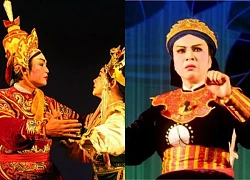 Như Lan14:39:32 13/02/2025Artist Thu Ha was born into a family with a tradition of singing, it is not an exaggeration to say that her family lives on singing. It seems that singing is ingrained in her subconscious so that when she gets old, the passion for the profession still remains.
Như Lan14:39:32 13/02/2025Artist Thu Ha was born into a family with a tradition of singing, it is not an exaggeration to say that her family lives on singing. It seems that singing is ingrained in her subconscious so that when she gets old, the passion for the profession still remains.

1 | 0 Discuss | Share
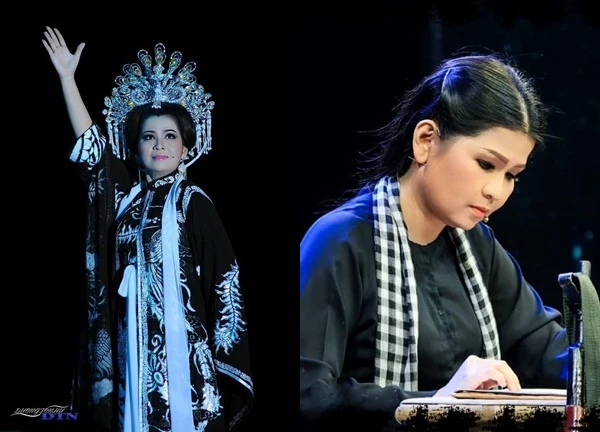
4 | 1 Discuss | Share
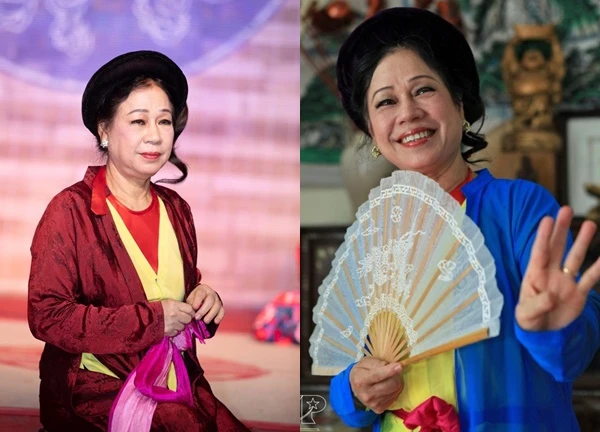
4 | 0 Discuss | Share
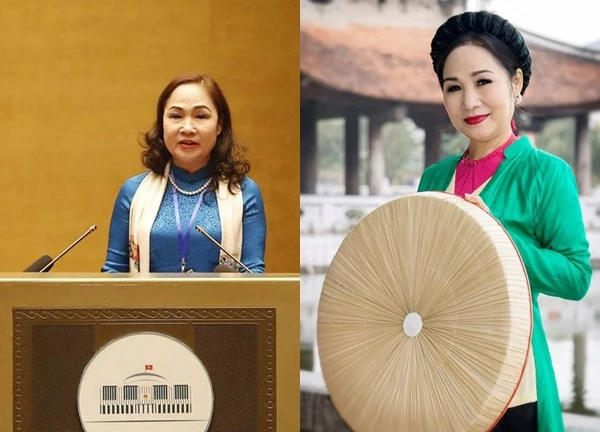
2 | 0 Discuss | Share
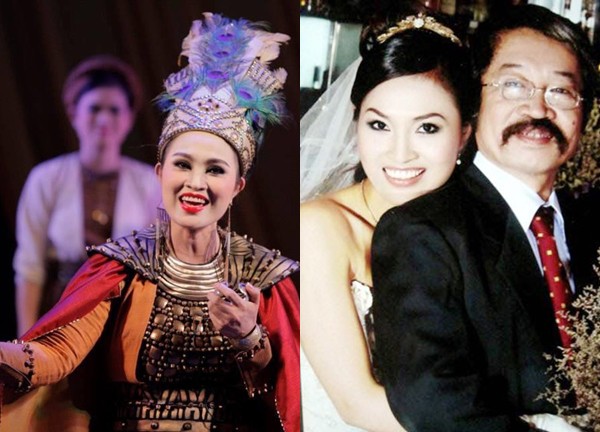
3 | 1 Discuss | Share
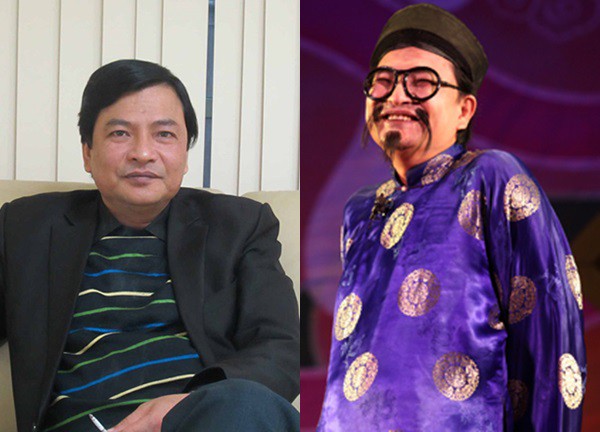
5 | 0 Discuss | Share
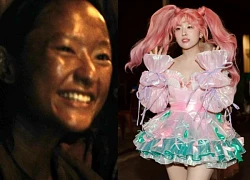

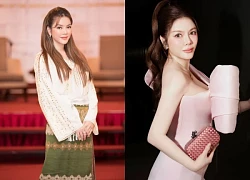



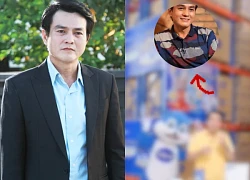
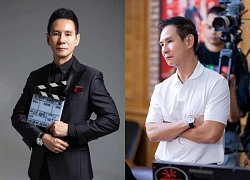
6 | 0 Discuss | Report